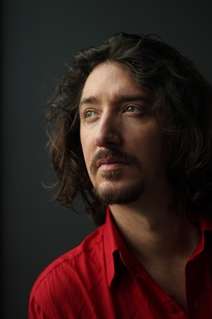|
Back
A rare and precious event Toronto
Koerner Hall
02/22/2018 - & February 23, 24, 25, 2018
George Frideric Handel: Alexander’s Feast, HWV 75
Amanda Forsyth (soprano), Thomas Hobbs (tenor), Alexander Dobson (baritone)
Julia Seager-Scott (harp), Neil Cockburn (organ), The Tafelmusik Baroque Orchestra and Chamber Choir, Ivars Taurins (conductor)

A. Dobson (© Mélissa Tremblay)
This is certainly a singular work. It was composed and performed in 1736, toward the end of Handel’s sometimes successful, sometimes calamitous career as an opera composer, and near the start of his string of landmark oratorios. Among its singularities is that it contains two full-fledged concertos (there were originally three).
Compared with Handel’s oratorios treating material from the Old Testament its plot is rather thin (things picked up when he composed Saul in 1739). It hinges on the moodiness of the great Macedonian conqueror, Alexander. Musical performance at a magnificent feast in the captured city of Persepolis reminds Alexander of his warlike emotions during his campaigns and he threatens to burn the city at once. The soothing influence of St. Cecilia restores peace and harmony. Along the way there are some very fine solos and, of course, wonderful choruses, with the Tafelmusik Chamber Choir in their usual fine form.
It must be said, though, that Handel’s wondrous ability to match music to the thoughts or mood expressed (so evident in the operas) falters and the music is often at odds with the content expressed. One example is the soprano’s “Thaïs led the way”, recounting Alexander’s determination to burn the city accompanied by his lady friend of the moment. At first its lyrical style runs counter to the content - until the chorus joins and the music accelerates.
Earlier, we are told that Timotheus’ lyre inspires “heav’nly joys”. This is where the first of the concertos enters the scene, the Concerto for Harp, a very familiar work on its own. (It has its own opus number, HWV 294.) For this Julia Seager-Scott plays a triple harp, quite the antique instrument even in Handel’s day (it has three sets of strings with 93 in all; the modern pedal harp has a single set of 47 strings). Her careful performance was very lovely, but curiously dainty to represent music that supposedly arouses strong emotion. Toward the end of the oratorio - and heralding the arrival of St. Cecilia herself - the Concerto for Organ op. 7, no. 4 creates a more apropos effect. It’s a lovely piece with its light string accompaniment.
The three soloists were fully up to the mark. As far as I know this was US soprano Amanda Forsyth’s local debut; she has a beautiful, expressive voice and nailed every aria. British tenor Thomas Hobbs has precisely the right tone for this repertoire; he gave a master class while here - let’s hope some of the magic was transmitted. Local stalwart Alexander Dobson managed to inject an element of characterization into his well-honed vocalism.
The work comes across as more a variety show than a conventional oratorio. The subtitle is The Power of Musick and it's a pity that the libretto (by Newburgh Hamilton after John Dryden) is so very...poetical. It is a rare and precious thing - maybe a bit too precious. I cannot fault the performance for this; Ivars Taurins conducted with his usual vigour and attention to detail.
Michael Johnson
|